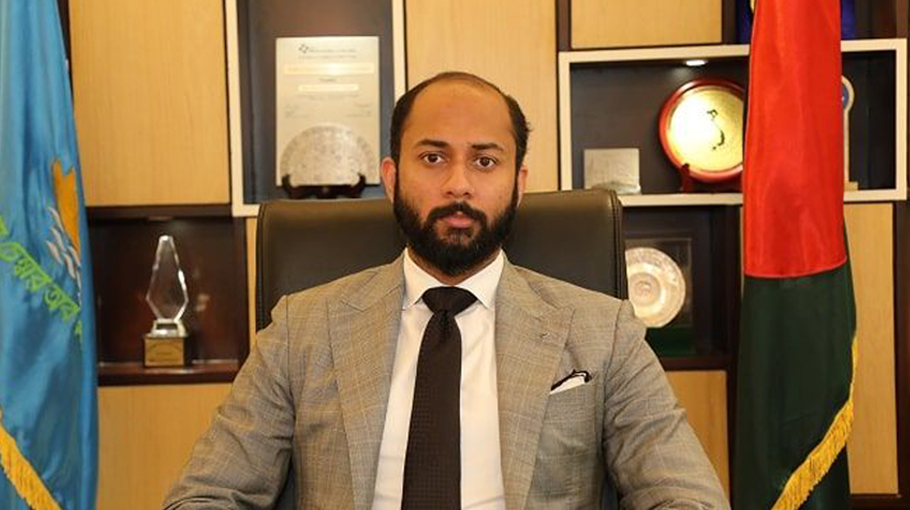Reshaping economy necessary for a better tomorrow
DCCI president says in interview with BSS

Dhaka Chamber of Commerce and Industry (DCCI) President Rizwan Rahman has laid emphasis on reshaping economy towards a better tomorrow.
"Infrastructural priority, demographic dividend, low-cost financing, comprehensive backward linkage industry and technological improvement in country can privilege our businesses to utilize the economic competitiveness. Economy should have adopted the road to recovery plan as an inclusive, time bound and result-oriented recovery agenda is critical to rehabilitate the economy," he told BSS at a recent interview.
However, he said, there are issues and aspects that may hold back economic acceleration are elicited hereafter to shape better economic stature.
Rizwan Rahman mentioned that Bangladesh has seen significant development over the last decade and the country's GDP has been growing at 7 percent in the recent past years and 6 percent on average per annum in the last decade.
The growth has recorded high at 8.15 percent until pandemic outbreak happens, he added.
However, the DCCI chief said, the onslaught of coronavirus pandemic plunged the GDP growth to 5.47 percent while almost all developed and developing economies recorded negative. Per capita Gross National Income (GNI) has increased to $2,554 in 2021 and these positive growth amidst the pandemic time recognized Bangladesh as one of the top economic performers, he added.
He informed that the macroeconomic trend of the country shows optimism of V-shaped rapid recovery from vulnerability.
"Our resilient Private sector has been playing pivotal roles in economic recovery management. It has always been a major contributor to developmental journey of Bangladesh. The private investment to GDP ratio was always incremental but slightly reduced to 23 percent to GDP having COVID effect which is targeted to 27.35 percent in 2025," he added.
Rizwan Rahman said in view of recent macroeconomic position and dynamism, investment target seems achievable.
However, he said, policy measures along with enabling business environment are essential antecedents for ensuring higher private investment.
Growing number of "Middle and Affluent consumers" (MAC) base with strong purchasing power is new economic driver to strengthen our local economy, promote trade potential, economic competitiveness globally, he added.
The DCCI president noted that infrastructure is inevitable for economic development and lack of appropriate and inclusive infrastructure is one of the bottlenecks for desired private sector business development.
"Bangladesh requires investment minimum 5 percent of GDP which is $320 billion cumulative investment in physical infrastructure by 2030 to meet the growing infrastructure demand though almost all our peer economies invest ranging from 5 percent to 10 percent to the GDP," he added. He said the transport sector alone requires between $36 and $45 billion investment. Rizwan Rahman said Bangladesh is going to graduate in to a developing economy by 2026 according to the United Nations Capital Development Fund (UNCDF).
This economic milestone indicates changed economic outlook and in the transitional and transformational phase, Bangladesh will undergo economic and business policy changes, institutional and structural reforms in core economic system including financial sector, investment, industrial context, tariff system, local market as well international trading network, he added.
To overcome the interim economic transition, he said, all relevant stakeholders of the economy need to endeavour collectively and strategically for smooth transformation later 2026 so that economic expedition of Bangladesh remains uninterrupted.




